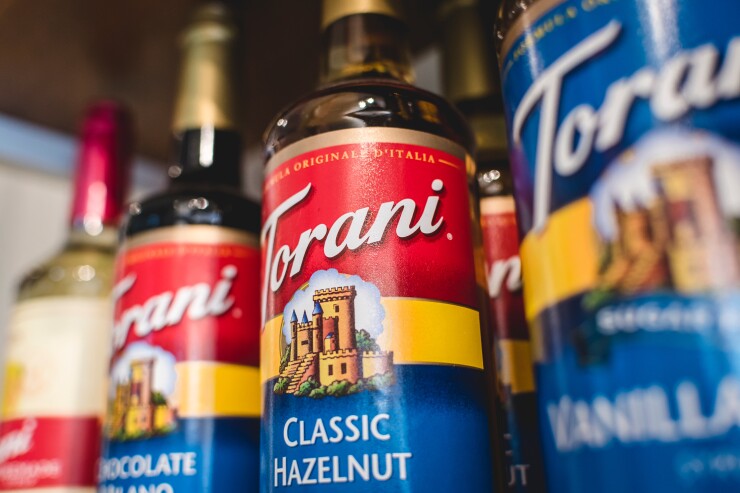Between the
Melanie Dulbecco is the CEO of Torani, a syrup company based in San Leandro, California. With around 200 employees, Torani has managed to survive economic downturns like the Great Recession of 2008 and the COVID-19 pandemic without layoffs. In fact, the company has on average grown by 20% each year in the 32 years Dulbecco has served as CEO.
"When we have struggles, layoffs are never a consideration," says Dulbecco. "We think about our team members, their families, the importance of stability, and just take a very different approach from other companies."
Read more:
Dulbecco admits that avoiding layoffs takes meticulous planning and an executive team that prioritizes people when the unexpected strikes. For example, when COVID hit the U.S., Torani's C-suite immediately looked at what they would need to cut in order to maintain full employment, even if, theoretically, their revenue dropped by 50%. They focused on cutting down their travel budget. If anyone were going to take hit on pay or
"Day one of COVID, we said that we would optimize for people," says Dulbecco. "We knew this would make us more resilient because we did right by our team members and took care of them and their families."

In return, Dulbecco saw Torani's employees take care of the company. In March 2020, when Torani was supposed to move its headquarters from South San Francisco to San Leandro, California issued its stay-at-home order. If Torani didn't have its full workforce, Dulbecco is certain they couldn't pull off the move to their new factory while taking COVID precautions, like masking and social distancing. Every employee stepped up to help facilitate the move.
Read more:
"This was the biggest bank loan in our history — we had to figure out how to move," she says. "Everyone pulled together. We did it in six months instead of six weeks, but everyone was safe."
Torani then avoided the Great Resignation, which struck the following year. On average, Torani sees a 6% annual turnover rate, according to Dulbecco, compared to a manufacturing industry average of 39% in 2022.
As the economy has shifted and employers are once again tightening their budgets, Torani believes longer-term strategizing could prevent
Read more:
"I see a lot of companies that just hire a lot of people, and if it doesn't work out, they let them go," she says. "When we hire people, we really believe in the sustainability of that role. People aren't expendable."
For Dulbecco, layoffs aren't an effective strategy when considering the long-term growth of a company. Hiring costs, which can be as much as two times the salary of the employee who left, aren't good for any business's budget; on top of that, the new hires often need time and training to catch up to the performance level of the former employee, explains Dulbecco.
But even beyond the financial impact, Dulbecco believes Torani's focus on retention creates a rare work environment, where people can say they have grown for decades with one company.
Read more:
"Every year, we celebrate these great milestones of five, 10, 20 and 25-year anniversaries," says Dulbecco. "Maybe they started in manufacturing, and now they ended up in finance. We invest in people's development and create a joyful environment with people we have known for decades."
Dulbecco advises employers to rethink how they hire and plan for growth. If a company puts talent first, she is confident that growth will come. That's what a supported workforce can do.
"There are so many ways to get really creative when you're not simply optimizing for profitability but for people," says Dulbecco. "Then everyone can come together and build trust and resiliency within the organization."






